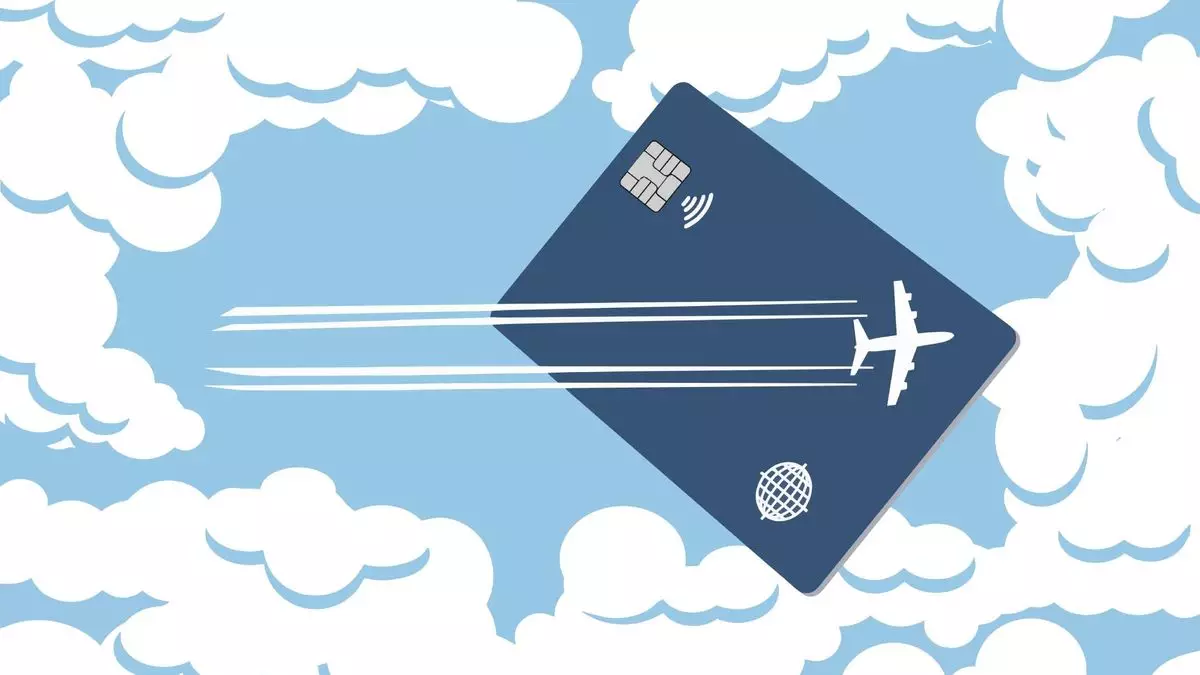The recent scrutiny of loyalty programs by the United States Department of Transportation (DOT) has ignited a debate about government overreach, consumer rights, and the evolving landscape of airline rewards. As the DOT launched an investigation into the practices of the nation’s largest airlines—American, Delta, Southwest, and United—reactions poured in from both consumer advocates and industry representatives, painting a complex picture of an industry under pressure.
Critics have swiftly condemned the DOT’s actions, arguing that the investigation is an unnecessary intervention in a system that plays a crucial role in consumer satisfaction and loyalty. The U.S. Travel Association’s CEO, Geoff Freeman, encapsulated these sentiments by questioning the DOT’s focus on airline rewards while air travel issues, like staffing shortages, persist. This sentiment echoes a broader frustration that regulatory bodies might be failing to tackle more pressing operational challenges facing the airline industry.
Conversely, advocates for the probe, such as Bill McGee from the American Economic Liberties Project, argue that the investigation is essential for consumer protection. McGee’s concerns revolve around the sudden changes in loyalty program rules that leave consumers bewildered and frustrated. He fears that the norm of altering reward point values, coupled with other opaque practices, has created an environment lacking fairness for loyal customers.
In a detailed request, the DOT has mandated the Big Four to submit information regarding their reward programs, focusing on devaluations of earned points and pricing strategies. Secretary Pete Buttigieg emphasized that these programs hold significant sway in the airline sector, affecting how consumers interact with airlines and influencing their overall travel experience. Thus, the inquiry aims to ensure that airlines remain transparent in their operations. However, in doing so, one might wonder if the approach is a case of swinging the regulatory hammer where a lighter touch was warranted.
One central question concerns the validity of the comparison made by DOT between airline rewards programs and traditional financial products, such as savings accounts. Critics, including travel agency owner Kyle Stewart, argue that rewards programs function more like arcade games—offering benefits and experiences subject to change at the company’s discretion. This classification may undermine the weight of the investigation because it assumes a level of economic rights and consumer entitlement that may not genuinely reflect the nature of these rewards.
As the investigation unfolds, it’s crucial to recognize the substantial financial backdrop against which loyalty programs operate. The airline industry is replete with lucrative arrangements, such as co-branded credit cards, which attract millions of users. Delta Airlines, for instance, generated a whopping $6.8 billion from its relationship with American Express in 2023. However, despite rising revenue, the sustainability of consumers’ trust remains questionable, particularly as recent reports indicate that reward redemptions have escalated faster than the rate of inflation.
As the number of people enrolled in airline loyalty programs continues to skyrocket, so too do the associated challenges. The motivation to encourage customer fidelity often clashes with operational realities, leading to abrupt changes in redemption ratios and value perceptions. In this arena, the most pressing question becomes: How can consumers protect themselves against practices they may deem unfair when the rules of the game keep changing?
At the core of the DOT’s argument for regulation lies the pressing need for transparency and fairness within the airline loyalty schema. The reality is that consumers pour significant amounts of time, money, and loyalty into their relationships with airlines, yet find themselves in an often-changing labyrinth of rules and rewards. McGee underscores this dilemma, asserting that the initial trust established by consumers when joining these programs has eroded over time as airlines have revised the terms without warning.
Nevertheless, pushing back against an overly regulatory approach, industry representatives argue that competition keeps airlines honest in terms of their loyalty offerings. The trade group Airlines for America insists that loyalty programs are vital to customer appreciation and competition, allowing airlines to differentiate themselves and build lasting customer relationships.
As this investigation continues, the challenge lies in striking a balance between consumer protection and enabling airlines to operate competitively in a complex marketplace. Both sides present compelling arguments, but the overarching need for transparency remains evident.
Moving forward, it’s essential to ensure that any regulatory measures do not stifle innovation or the fundamental mechanics of loyalty programs. A collaborative approach involving industry stakeholders and consumer advocates may yield beneficial outcomes for all parties involved, paving the way for a more equitable playing field where consumer rights and corporate interests can coexist harmoniously. The stakes are high, and how this situation unfolds could very well redefine the future landscape of airline rewards and customer loyalty in air travel.


Leave a Reply